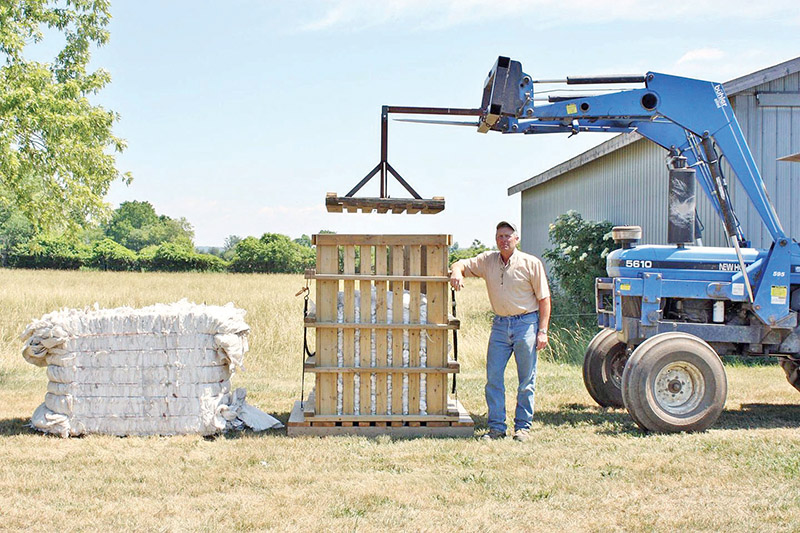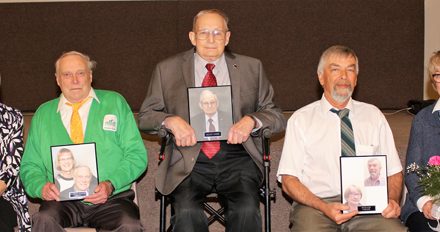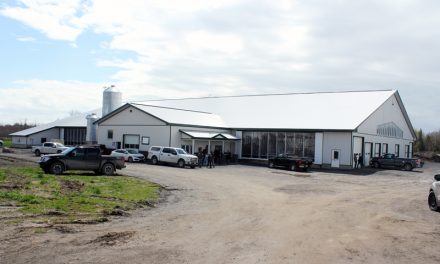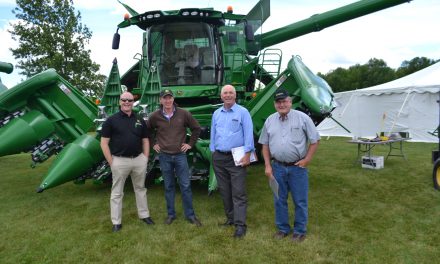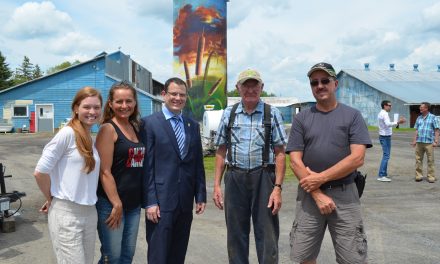Photo courtesy of U-Pac Agri Service
By Barb Keith-Badour
AgriNews Contributor
It’s not unusual for farmers to take matters into their own hands when they have a problem to be solved and Prince Edward County beef farmer and owner of U-Pac Agri Service, Lynn Levitt, is no exception.
Like many dairy and beef farmers in Ontario, Leavitt uses wrapped bales of hay to feed his livestock. Unfortunately, Ontario doesn’t have a province-wide recycling program for this material, but Levitt knew he didn’t want it to go to the landfill site, so while working with a group of local farmers, he started looking into what could be done with this plastic and how farmers could get rid of it in an environmentally sustainable manner.
“I believe the fix to the problem starts in the barnyard,” says Leavitt. “But we need to do this as a group.”
Leavitt discovered there were places that would take the plastic, but it needed to arrive in a relatively clean and compact manner which led him to design and manufacture a compactor to compress bale wrap into bales that fit perfectly onto a standard sized pallet. Silage plastic can also be recycled in the same manner, but the products cannot be combined into one bale. The compactor is very easy to use. Farmers just need to let the plastic dry, shake off any dirt and toss it into the compactor to be compressed by a tractor. On Leavitt’s farm, he just hangs the plastic over the side of the compactor to dry. The compactors are available to purchase for approximately $750; picked up at the farm but the company also sells the blueprints for farmers who wish to build their own.
In the Quinte area, Leavitt works with other farmers to collect enough bundles to fill a transport truck, relying on the cooperation of his local agriculture supply store to provide a loading spot and equipment. The bales are then shipped to a recycler from the London area. It takes approximately a year for participating farmers in his area to gather enough bale wrap to fill a load of approximately 45,000 pounds (each bale of bale wrap weighs about 1,000lbs and bales of sileage wrap are approximately 500lbs). He would like to see farmers in other areas of the province work together to fill truck loads.
A facility in Quebec is quite interested in collecting this material and has indicated they could take up to 200 tonnes per year. Leavitt believes they would collect plastic from Eastern Ontario farms if central collection points could be arranged. As the Quinte-area farmers have demonstrated, they, with the help of a local business, can be done.
Lanark County beef farmer, Don Badour, has purchased a compactor and is very interested in working with area farmers to collect enough bales to fill a transport trailer.
Leavitt also works with Cleanfarms who have distributed a number of these compactors or their blueprints in Quebec and is running a collection pilot program in Bruce County.
Leavitt was presented with The Environmental Stewardship Award from Beef Farmers of Ontario for his ingenuity to design this compactor but also for his efforts to educate and assist other farmers in managing on-farm plastic waste from bale and sileage wrap. TESA recognizes the outstanding environmental stewardship of an Ontario beef farmer. Special consideration is given to farmers who have taken innovative approaches to environmentally sustainable beef production.
For more information on the compactor, including demonstrations or if farmers or municipalities are interested in working together to gather and ship the plastic, reach out to U-Pac Agri Service on Facebook.

